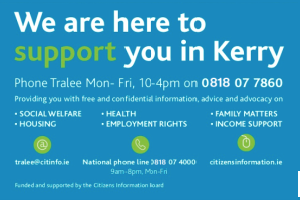 KERRY drinks and hospitality sector jobs account for 10.5% of all employment in the county and these jobs are highly vulnerable to a hard or ‘no deal’ Brexit according to a new report.
KERRY drinks and hospitality sector jobs account for 10.5% of all employment in the county and these jobs are highly vulnerable to a hard or ‘no deal’ Brexit according to a new report.
The Drinks Industry Group of Ireland (DIGI) report shows extent of rural Ireland’s reliance on drinks and hospitality businesses for employment. The drinks industry, in its narrowest definition, directly and indirectly employs 90,000 people; when the wider hospitality sector is included, total employment is more than a quarter of a million.
An economic shock, like a hard or ‘no deal’ Brexit, could leave rural and regional Ireland vulnerable to job losses and business closures and with 6,450 people employed in the hospitality industry in Kerry, the impact could be severe.
Continued below…
Rosemary Garth, Irish Distillers’ Communications and Corporate Affairs Director and Chair of DIGI, said that the new report clearly demonstrates the vital importance of the drinks and hospitality sector to rural Ireland, local employment and the economy in general.
“In many parts of Kerry, drinks, hospitality and tourism businesses are the primary and sometimes only employers. This makes these areas highly vulnerable to economic shocks, like Brexit,” said Garth.
“If a hard or no deal Brexit occurs and sterling devalues further, British tourists will look to save their money rather than spend it. That means fewer holidays and a smaller budget when they travel. Considering the British are our single biggest tourism market, this is a significant problem for rural areas that completely rely on foreign spend to power their local economy. Without a way to offset this decreased trade, some towns and villages could face business closures and job losses not unlike those of the recession.”
DIGI advocates ‘defensive’ alcohol excise tax reduction to allow businesses to invest in growth and offset worst effects of Brexit.
“By reducing excise, not only would the Government be rewarding consumers by putting more money back in their pockets, it would be helping to defend producers, retailers and other businesses across Ireland from the worst impacts of economic uncertainty. With less spent on excise tax, employers will be able to invest in business development and job creation, giving Ireland’s regions the necessary supports to grow in line with the rest of the country.”













